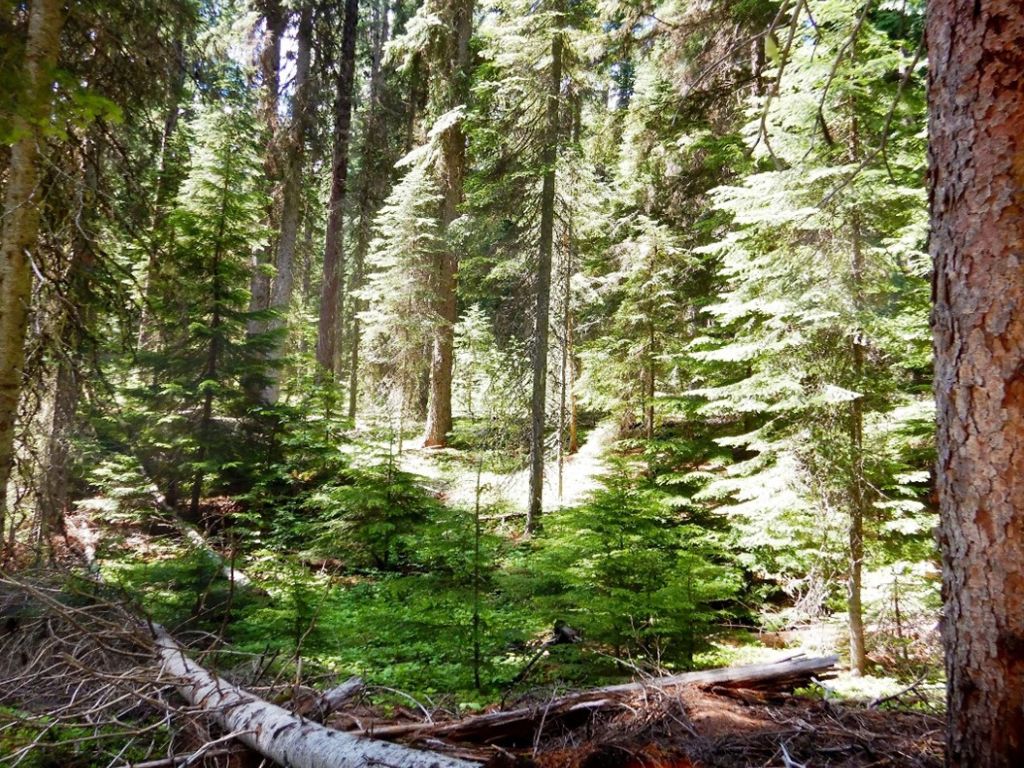Current work in wildlife, rivers, public lands, and climate
Press Releases
Court scraps massive Montana logging project threatening grizzlies and old forests
“This is a great win for the wild forests and grizzly bears of Montana’s spectacular Yaak Valley,” said Ted Zukoski, a senior attorney at the Center for Biological Diversity. “This decision affirms that agencies can’t ignore the vulnerability of this small but critical population of grizzlies and can’t turn a blind eye to the climate harms of clearcutting mature forests.”
The project would have allowed nearly 4,000 acres of the Kootenai National Forest to be commercially logged, including clearcutting more than 1,700 acres and logging hundreds of acres of centuries-old trees, destroying habitat for a largely isolated, fragile population of about 25 grizzly bears in the Yaak Valley. Constant truck traffic would have exposed bears to increased human conflict and death.
The order prohibits the U.S. Forest Service from implementing the project, which was expected to last 10 years.
“For decades the Kootenai National Forest has been clearcutting our oldest, largest trees,” said Rick Bass, director of the Yaak Valley Forest Council. “The Forest Service is deliberately undercutting the Biden administration’s commitment to battling climate change. We shouldn’t have had to fight for seven years over such a ridiculous project, and we’re grateful for the support we’ve received.”
In June 2022 conservation groups filed a lawsuit challenging the project. In this ruling, U.S. District Court Judge Donald W. Molloy found that the U.S. Fish and Wildlife Service ignored population declines in the Cabinet-Yaak population of grizzlies, and that the Forest Service failed to address harms to grizzlies from illegal use of motorized vehicles. The court also found that the Forest Service failed to consider the climate harms of logging thousands of acres of forest that currently store carbon.
The court rejected the Forest Service’s argument that the project would have an “infinitesimal” impact on climate change because young trees would eventually replace the carbon being stored in trees the project would cut down. In his ruling, Molloy said “logging causes immediate carbon losses, while re-sequestration happens slowly over time, time that the planet may not have.”
“This ruling is a giant win,” said Adam Rissien, ReWilding manager with WildEarth Guardians. “It’s a win for mature and old growth forests because the court recognized their importance in storing carbon, a factor the Forest Service failed to properly consider. It’s also a win for the small population of grizzlies in the Yaak Valley, as the courts found recent deaths of female bears among this population cannot be ignored.”
“The bottom line is that the Cabinet-Yaak grizzly population is failing every recovery target and goal, so we are thrilled that we won our case,” said Mike Garrity, executive director of the Alliance for the Wild Rockies. “The Cabinet-Yaak grizzly population is failing the target for females with cubs; it is failing the target for distribution of females with cubs; it is failing the female mortality limit (which is 0 mortalities until a minimum of 100 bears is reached); and it is failing the mortality limit for all bears (also 0 mortalities until a minimum of 100 bears is reached). It’s long past time for the Forest Service to recover grizzly bears by protecting their habitat as required by law instead of destroying it.”
Background
The 2.2 million-acre Kootenai National Forest includes the state’s lowest elevation along the Yaak River and reaches to the 7,700-foot Northwest Peak in the Purcell Range of northwest Montana. More than 190 species of birds and many other native animals, including wolves, Canada lynx, wolverines, mountain goats, bighorn sheep and black bears, roam the forest.
Mature and old-growth trees absorb and store significant amounts of carbon. Trees pull carbon pollution in the form of carbon dioxide from the atmosphere and convert and store it as carbon in their trunks, branches, leaves and roots. Trees continue to absorb and store carbon as they grow and age.
Logging, transportation and manufacturing release most of trees’ stored carbon over a short period of time. Ecologically impoverished tree plantations take centuries to recover the lost carbon and wildlife habitat provided by older forests.

Old multi-story forest slated for phased clearcut, Kootenai National Forest. Photo credit: Yaak Valley Forest Council
The Center for Biological Diversity is a national, nonprofit conservation organization with more than 1.7 million members and online activists dedicated to the protection of endangered species and wild places.
WildEarth Guardians is a conservation nonprofit whose mission is to protect and restore the wildlife, wild places, wild rivers and health of the American West.
The Yaak Valley Forest Council works for a wild Yaak through science, education and bold action across northwest Montana.
Alliance for the Wild Rockies’ mission is to protect habitat for native species in the Northern Rockies.
###